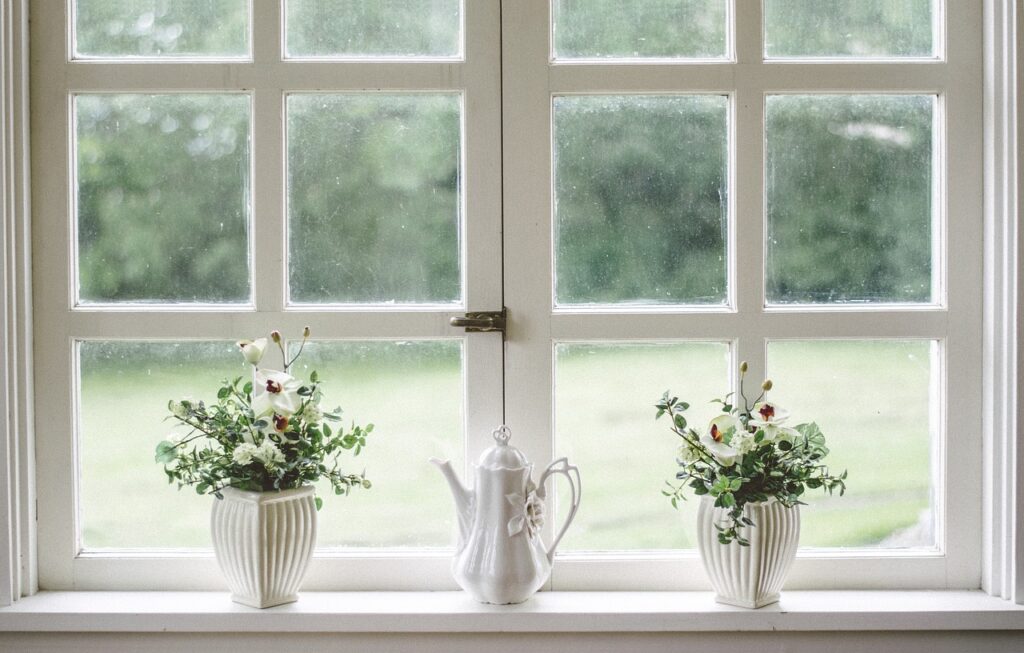Windows are more than just a source of natural light and a view of the outdoors—they play a critical role in your home’s safety, energy efficiency, and structural integrity. Over time, even the highest-quality windows can wear out, compromising these essential functions. Knowing when it’s time to replace your windows is key to maintaining a safe, energy-efficient, and comfortable home.
Signs It’s Time to Replace Your Windows
Drafts and Temperature Imbalances: If you feel a noticeable draft near your windows or experience inconsistent temperatures between rooms, your windows may no longer provide proper insulation.
Visible Damage or Decay: Cracks in the glass, warping, rotting frames, or difficulty opening and closing windows are clear indicators that replacement is necessary.
Condensation Between Panes: If moisture collects between double or triple-glazed panes, it’s a sign that the seal has failed, reducing energy efficiency.
High Energy Bills: Older, single-pane windows or windows with compromised seals often lead to increased energy consumption as your heating and cooling systems work harder to maintain a consistent indoor temperature.
Excessive Noise: Poor-quality or aging windows might not block outside noise effectively, making your home less peaceful.
Outdated Aesthetics: Worn-out or outdated windows can detract from your home’s curb appeal and overall value.
Benefits of Replacing Your Windows
Improved Energy Efficiency:
Modern windows are designed with advanced insulating materials and double or triple glazing to reduce heat transfer. This keeps your home cooler in the summer and warmer in the winter, cutting down on energy bills.
Enhanced Safety and Security:
Newer windows come with robust locking mechanisms and shatter-resistant glass options, making your home more secure against break-ins and accidents.
Better Indoor Comfort:
Replacing windows eliminates drafts, reduces outside noise, and improves temperature regulation, creating a more comfortable living environment.
Protection Against Structural Damage:
Leaky or damaged windows can let moisture seep into your walls, leading to mold, mildew, and structural issues. Replacing them prevents these problems and preserves your home’s integrity.
Increased Home Value:
Energy-efficient, visually appealing windows are a major selling point for potential buyers, making them a worthwhile investment if you plan to sell your home.
How to Choose the Right Replacement Windows
Consider Energy Ratings:
Look for windows with an ENERGY STAR® certification or a low U-factor, which measures heat transfer. The lower the U-factor, the better the insulation.
Choose the Right Material:
Vinyl: Affordable and low-maintenance
Wood: Classic look with excellent insulation but requires upkeep
Aluminum: Durable and modern but less energy-efficient
Fiberglass: Strong, energy-efficient, and long-lasting
Think About Style:
Select window styles that complement your home’s architecture, whether it’s double-hung, casement, sliding, or picture windows.
Work with a Professional:
Proper installation is just as important as the quality of the window itself. Hire a reputable contractor to ensure a secure and precise fit.
The Bottom Line
Replacing your windows isn’t just about aesthetics; it’s a crucial step in safeguarding your home, reducing energy costs, and maintaining its structural health. If your windows show signs of aging or damage, consider upgrading to modern, energy-efficient models. The benefits—from improved comfort and safety to long-term savings—make it a decision that pays off in more ways than one.


